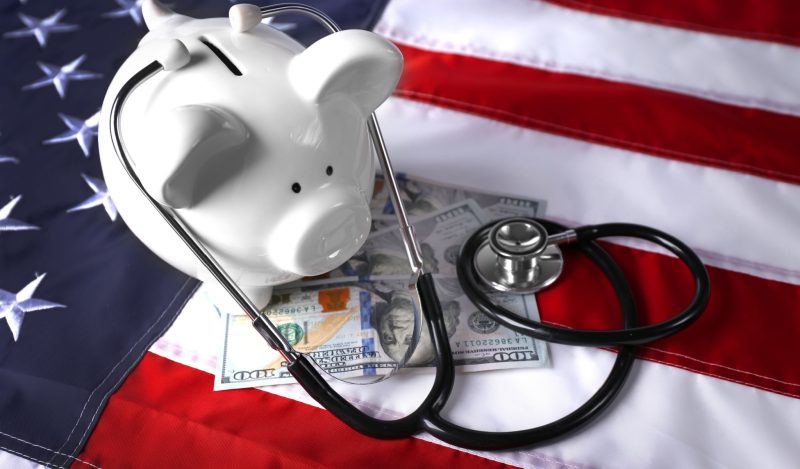On 11/19/21 the US FDA authorized a booster for any American older than 18 year olds who have had two doses of Pfizer or Moderna vaccination. Peter Marks says that this action will “eliminate confusion about who may receive a booster dose.”
Ironically, it creates confusion. The USA is now a global outlier, as I will detail below. The US FDA’s decision making, specifically for Moderna, contradicts other leading health authorities and raises serious doubt about the agency’s judgement, and whether it remains free from political tampering.
Worse, the action introduces fundamental questions of benefit and harm. Consider a healthy 22-year old American man who has had already taken two doses of Moderna. The FDA is now authorizing this man to receive a 50 ug booster shot of Moderna. Is that in his best interest? All of society?
Simply put: the FDA cannot know that the benefits to such a man outweigh the risk. The FDA does not even know the benefits to this man and broader society outweigh the risks. The FDA is playing a dangerous game with vaccine perception.
Why do I say this? Right now, it is clear that Moderna has a higher rate of myocarditis than Pfizer. Given the presence of a safer alternative, peer nations have rapidly curtailed the use of Moderna. A partial list:”
Sept 29, Ontario Province, Ca, recommends Pfizer over Moderna for people 18 to 24
Oct 6, Sweden & Denmark paused Moderna for anyone under 30. (In Denmark under 18 can request Moderna)
Oct 6, Norway advises Pfizer be preferentially used in men under 30
Oct 7, Finland joined Sweden & Denmark and paused Moderna for men born before 1991
Nov 9, France advises against Moderna in anyone under 30
Nov 10, Germany recommends Pfizer to anyone under 30 or pregnant women
In a slightly younger age group, for the same concern, other nations: Denmark, Norway, Taiwan, South Africa all recommend only 1 dose of mRNA vaccine (for now)
Yet, here in the USA for an 18-30 year old healthy man, we are now authorizing receipt of a third dose of Moderna. Let’s consider efficacy and safety.
Efficacy
Thus far, the Pfizer press release as to the results of the booster RCT show a reduction in symptomatic virus/ infection. No one was hospitalized in either group—so we have no data boosters reduce hospitalizations. No one died in either group—so again no data. Only two people had oxygen sats less than 93% in the control arm. A larger sample size is needed to identify the numerical risk difference for that endpoint, if it exists. All that can be said for sure, right now, is boosters reduce symptomatic covid19. There is not enough information to know how this risk reduction interacts with the age of the recipient.
But, given this is an endemic virus, eventually having sars-cov-2 and some mild symptoms is likely inevitable in your life. The bar for boosters must be showing that one is less likely to get very sick from the virus, not that mere symptomatic covid is reduced, and that has not (yet) been demonstrated.
Safety
We do not know the rate of myocarditis after dose three of Pfizer. Preliminary data from Israel show that it is less than dose two, but it is not zero. We do not know the rate of myocarditis from dose two of Moderna. It will definitely be larger than zero, and likely larger than Pfizer, but this is not yet known.
Net benefit
In order to determine net benefit, one has to balance efficacy and safety. Do boosters lower hospitalizations in anyone under 30, under 40? We have no idea, and it is an uphill task to do that. Rates of hospitalization in healthy, non obese vaccinated people in this age group are very low, and particularly low with Moderna’s 2 dose series, even in the face of delta.
For that reason, any myocarditis greater than zero that results in hospitalization may offset any gains from boosting. Even a little dose three myocarditis could result in boosting being net harmful, particularly for young, healthy men. If a subset of myocarditis has long term problems, it will be a serious problem.
Simply put, the FDA has no reliable data to know for sure that boosting–particularly Moderna dose number three for someone who had two doses already—and particularly among healthy young men provides a health benefit. It is possible to be net harmful. That is simply not good enough for the agency.
Sars-cov2 spread in the population
Although everyone thinks boosting is necessary to change the epidemic trajectory, this claim is highly speculatory and not supported by robust evidence. Given the nature of the claim—just how uncertain it is—vaccine decisions must be made at the individual person health level and not based on wishful thinking of population spread. We simply don’t know what boosting might or might not do, and the broader sequelae.
The best person on twitter
The best person thinking about this issue on twitter is Walid Gellad.
Here is Walid pointing out that no one knows the safety risk with Moderna:
Myocarditis risk after booster dose of Moderna is unknown.
— Walid Gellad, MD MPH (@walidgellad) November 19, 2021
That’s not my tweet. That’s the result after exhaustive evidence review from the CDC. pic.twitter.com/aofqCTg2k8
Are current booster recs confusing?
The idea that we need to have the same policies for Pfizer & Moderna because anything less is confusing is a profoundly stupid thing to say. Nations around the world are constructing different policies for these 2 products given the different risk benefit profile (as they should!), and the citizens of Sweden, Norway, Denmark, UK, South Africa, and Taiwan are all not jumping off buildings distraught by the mental complexity of it.
Second, there is already complexity in this space. J&J has different rules/ guidance. There are different doses by age (5-11 vs 12 and up) for Pfizer. Pfizer and Moderna have different doses themselves (30 vs. 100 x 2 then 50).
I frankly think it is intellectually dishonest to say that we need 1 size fits all booster recommendations because otherwise it is “confusing.” Finally, they have no direct evidence that the confusion exists. It is just an empty talking point.
What is really going on?
Allow me to outline what I think is really going on here. First, remember the top two FDA officials—Marion Gruber and Phil Krause—have resigned and would have left the agency by now per prior news reports. Next remember….
Remember, multiple news outlets have said the reason for their resignation is pressure from the White House to approve boosters based on insufficient data. Which is now literally happening before our eyes, and the risk benefit balance is worst for young men, and worst for Moderna, and we don’t know precisely what it is.
We cannot forget that there is a difference between medical and political considerations. The medical consideration is what is the balance of booster’s benefits and harms. How many hospitalizations do you prevent by boosting vs. how many do you cause by boosting (myocarditis)? And does this vary by age or gender?
The political consideration is how many cases of covid19 make the news. The political fortunes of this administration and the US economy are tied to cases/Covid-19 fear. Politics does not care (as much) about myocarditis.
As such, the worst person you want guiding these decisions is the White House, and the best person are those two people who just quit.
Last point: twitter experts are hypocrites or misleading here. Look at what Walid noted about one leading expert.
On Sept 23, Ashish Jha supports the old (more nuanced, but not perfect) booster guidance:
I think this is a good place to start in thinking about the reaction around expanding Booster authorization today. So you can understand where I coming from.https://t.co/jjDvQPPEwl
— Walid Gellad, MD MPH (@walidgellad) November 19, 2021
And Nov 18, Ashish says the rules he supported are more confusing than necessary.
This is just not a true statement:
— Walid Gellad, MD MPH (@walidgellad) November 18, 2021
“So far, official U.S. policy has restricted boosters to the medically vulnerable and those at high risk of exposure to the coronavirus.”
73% of the US is overweight/obese. All of them are already eligible for boosters.https://t.co/N8uCleUqWE
Finally, look at Walid’s point out the continual stream of incorrect statements from one account:
I cannot keep listening to this and not say something.
— Walid Gellad, MD MPH (@walidgellad) November 19, 2021
The constant focus on the age criteria of 65+ is a complete misrepresentation of what the eligibility is already, and is creating a straw man to take down.
80% of the us adult population is already eligible. https://t.co/8yfaeM7abD
Once again, I feel obliged to comment.
— Walid Gellad, MD MPH (@walidgellad) November 19, 2021
ACIP is not ‘unable to process data’.
When considering benefits versus risks, which is what ACIP does, they consider both, not just benefits.
This is a profound misunderstanding of what ACIP is doing. https://t.co/RMdzCxg10M
Final thoughts
As I reflect on this situation, I think there are two core problems. One, the ability to comment on this issue is so hostile, with many false allegations of “anti-vax” for anyone who suggests proper risk benefit appraisal. Two, the people who continue to comment are making mistakes with critical appraisal and benefitting from tribalism. The bottom line is the American people are taking a huge, unfavorable gamble that Europe rejects, and few will say otherwise.
Republished from the author’s blog
Published under a Creative Commons Attribution 4.0 International License
For reprints, please set the canonical link back to the original Brownstone Institute Article and Author.









